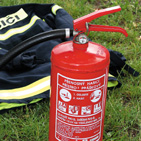Main page » Consultancy » Ecology » IPPC
IPPC
What is IPPC?
IPPC is an abbreviation for Integrated Pollution Prevention and Control, which is a Directive of the Council of the EU 96/61/EC from 1996. This IPPC directive entered our legal regulations in the form of 76/2002 Coll. - Act on Integrated Pollution Prevention and Control, on the Integrated Pollution Register.IPPC is a new, modern tool for environment protection that puts emphasis especially on accomplishment of integrated prevention and reduction of pollution in the form of changes in permission accord for activities listed in the appendix to the Directive.
Main principles of IPPC?
Basic principle is an integrated approach to technology evaluation.Permission process results from stricter criteria based on wide range of possible influences of given activities on the environment quality, on human health and on integral protection of the environment.
IPPC follows:
- Efficiency of the input use
- Emission in all parts of the environment
- Production and management of waste
- Energy consumption
- Local risks
What does IPPC refer to?
Technologies concerned are specified in appendix of the IPPC Directive.The Directive focuses especially on large plants, with most productions sectors the production capacity is the decisive factor.
Small and middle businesses are not included in the Directive with the exception of chemical industry.
What in an integrated permission?
IPPC Directive contains general principles defining essential obligations of an industrial installation operator. First and the most important obligation is to take all corresponding preventive actions against pollution, especially with use of the best available techniques (BAT).Fulfilment of these obligations is ensured by issue of so called integrated permission.
The purpose of the integrated per permission is to define conditions for performance of a given production activity.
Conditions for granting permission are specified in Decree no. 554/2002 Coll.
Application for integrated permission should always contain information regarding:
- parameters of the facility
- activities of the facility
- substances and energy used
- sources of pollution
- kind and amount of anticipated emissions
- anticipated consequences on the environment
- suggested preventive techniques and measures
Benefit of the integrated prevention in the field of the environmental protection?
- Fulfilment of legal requirements
- Improved environmental profile of the company
- Sustained compliance with legal regulations in the field of the environmental protection
- Protection of human health and the environment against possible negative impacts
- Improvement of credibility with interested parties
- Increase of company price and image
Copyright 1996 - 2025 Quality centrum, spol. s r. o. | Web designer Jiří Hron





